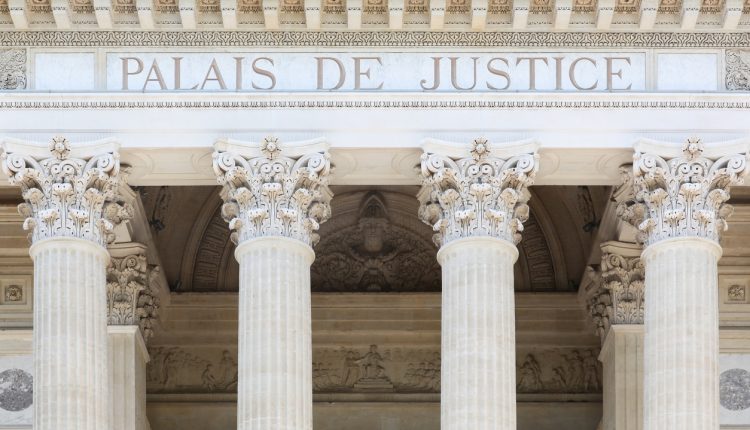An Inventory of Litigation Risks for Operating Businesses During COVID-19
Companies that continue to operate amid the COVID-19 crisis face a staggering variety of legal risks. Looking at recent lawsuits in France, we can see warnings for companies elsewhere in the world to observe.
Maintaining as much activity as possible, ensuring that the company will still be there after the sanitary crisis, saving jobs, dealing with the business partners, managing cash flow: these are the top concerns of companies today. Another one should, however, be on their mind: protecting themselves against future litigation. The States, employees, consumers, business partners are currently animated by goodwill and a focus on dealing through these unprecedented times as well as possible. History has nevertheless showed that litigation is never far off. Sylvie Gallage-Alwis, Partner at Signature Litigation, offers Lawyer Monthly her thoughts on the risk of legal action faced by companies operating during the COVID-19 pandemic, using France as a case study.
When it comes to litigation that may affect companies which keep on doing business during this period, employee-related litigation is central.
Looking at France, the main risk relates to employees developing the disease and filing a gross negligence claim. This applies to other countries too as the first wrongful death, linked to the death of a Walmart employee, was also filed in the United States. In France, the French government expressly stated that “the employer’s liability for its non-compliance with this specific obligation to prevent occupational risks can be sought” and that “regardless of the situation, complying with this specific obligation or, on the contrary, not complying with it, are not presumed (except in very rare cases) and must be proven, in the event of a dispute“. This statement has not been unnoticed by trade unions which have threatened numerous companies that their employees will file such claims. Such claims will be facilitated if the government agrees to list COVID-19 as an occupation disease. If this happens, there will be a presumption, which is almost impossible to overturn in practice, that will link the disease to the working conditions.
When it comes to litigation that may affect companies which keep on doing business during this period, employee-related litigation is central.
Some employees are also seeking liability on the ground of manslaughter (such as the employees of Amazon for instance). Here, the employee will have to demonstrate that the company breached a safety measure that caused a risk to the life of its employees. The types of protective measures implemented by the employer will therefore be scrutinised.
One can also fear cases relating to the anxiety of developing COVID-19, in a similar way as the litigation that arose relating to the exposure to asbestos. Pursuant to decisions dated 5 April 2019 (no. 18-17.442) and 11 September 2019 (no. 17-24.879 to 17-25.623), the Plenary Assembly of the French Supreme Court extended case law that was initially limited to workers potentially exposed to asbestos, to any worker exposed to a harmful product or substance. Here, all employees who did not develop COVID-19 but fear to do so could sue. In this instance, the employer must demonstrate that it complied with its safety obligation and provided protective measures as set out by the law.
Besides the actions of employees, companies also risk potential actions from third parties. This might be the case of a consumer who would act against a store who, according to the consumer, would not provide adequate protection, or the employees of transport or logistics companies or distributors in contact with the employees of the company in question. We are also seeing claims against jails on the ground that inmates started developing COVID-19 which would necessarily be linked to an outside contamination.
Class actions linked to how companies deal with refund or payment have also started over the world, with a starting point against cruise or hotel companies as well as against companies which provide memberships and have not suspended payments, in particular when governments were not yet sending strong or coherent messaging to the population. Lawsuits against some types of refund policies are starting as well, as well as against insurance coverage denials or limitations.
For the businesses exceptionally manufacturing products intended for the health and safety of the population (masks, antibacterial gel, overalls, ventilators) in order to help overcome the global shortage, there may be actions on the ground of product liability.
Finally, one cannot exclude contract liability between business partners who cannot fulfil their contractual obligations. An analysis of the case law relating to force majeure in the event of epidemics like Ebola, the Dengue fever, the H1N1 flu or the Chikungunya, does not provide much hope, at least in France. Indeed, the courts have either refused to take into account the concept of force majeure or denied the causal link between the pandemic and the non-performance claimed. This being said, there has never been any similar situation where States have taken measures to restrict freedoms.
An analysis of the case law relating to force majeure in the event of epidemics like Ebola, the Dengue fever, the H1N1 flu or the Chikungunya, does not provide much hope, at least in France.
The question will, therefore, be whether or not Courts will remember, when they will come to rule on these issues, that companies have faced an unprecedented crisis and actually helped States during it. It will be important to remind everyone of the solidarity that is currently taking place at every level.




